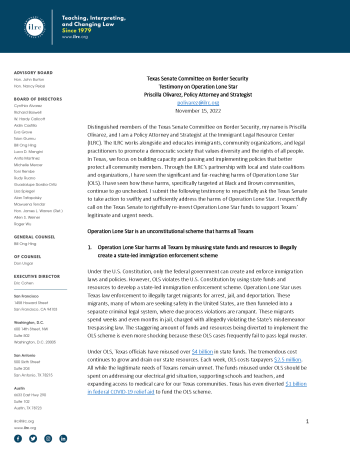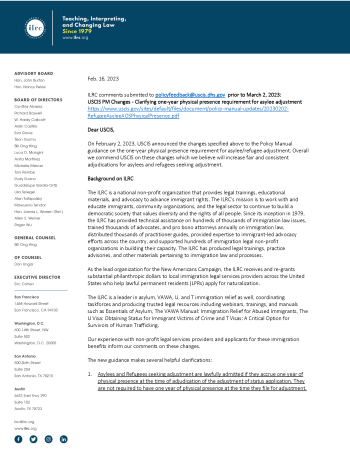
On February 2, 2023, USCIS announced changes to the Policy Manual guidance on the one-year physical presence requirement for asylee/refugee adjustment. In a comment letter on February 16, 2023, ILRC commended USCIS on the changes. We believe they will increase fair and consistent adjudications for asylees and refugees seeking adjustment.
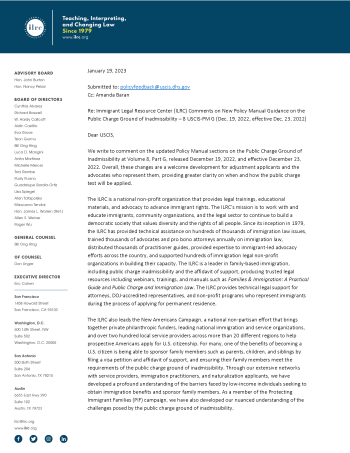
On December 19, 2022, USCIS published updates to its Policy Manual on how adjudicators should assess applications under the Public Charge ground of inadmissibility. This guidance accompanies the new final rule on Public Charge which took effect on December 23, 2023. The guidance is mostly positive, solidifying and strengthening longstanding public charge policy. However, the ILRC provided suggestions to clarify implementation of the new rule and help USCIS achieve their goals of ensuring that the public charge ground of inadmissibility is applied clearly, consistently, and fairly.
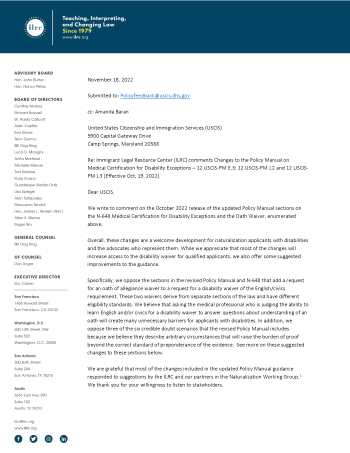
On October 19, 2022, USCIS published major revisions to their Policy Manual on the English and/or Civics disability waiver for naturalization applicants. Overall, these changes were a welcome improvement in access to the disability waiver. However, we opposed the sections in the revised Policy Manual and N-648 that add a question about understanding the oath of allegiance.
On October 19, 2022, USCIS published major revisions to their Policy Manual on the English and/or Civics disability waiver for naturalization applicants. Overall, these changes were a welcome improvement in access to the disability waiver. However, we opposed the sections in the revised Policy Manual and N-648 that add a question about understanding the oath of allegiance. The oath waiver and the English/civics disability waiver derive from separate sections of the law and have different eligibility standards.
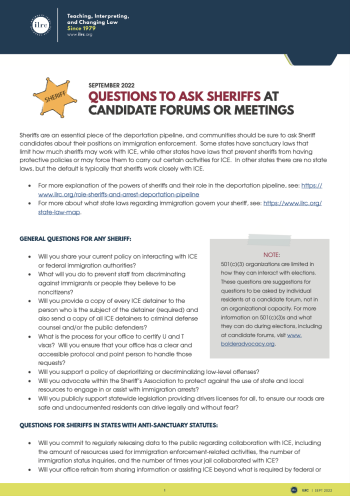
Sample questions about the sheriff’s policy positions on working with ICE that advocates or community members can use at candidate forums or other meetings. For more background information about sheriffs and their role in the deportation pipeline, see: https://www.ilrc.org/role-sheriffs-and-arrest-deportation-pipeline
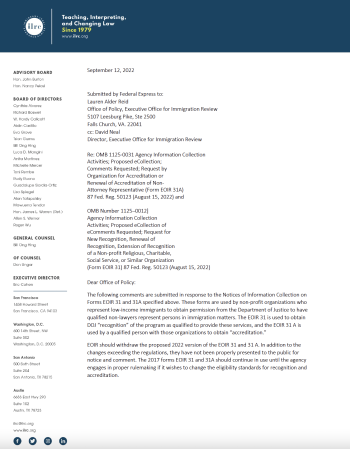
EOIR recently published proposed changes to the forms used to apply for DOJ recognition and accreditation. ILRC submitted comments objecting to the changes, which add new and burdensome requirements for applicants. The information requested and the new documentary requirements exceed the requirements in the regulations.
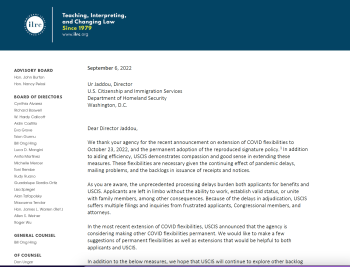
ILRC commended USCIS on its recent extension of COVID flexibility policies through October 23, 2022. In addition, we suggested some new COVID-related policies to ameliorate the impact of the pandemic, including longer extensions of time to respond to notices and decisions, adoption of a mailbox rule for filing deadlines, and allowing waivers to proceed despite death of a qualifying relative.
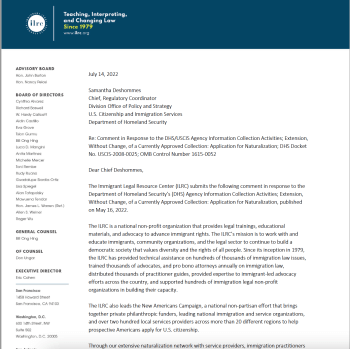
On July 14, 2022, the ILRC submitted a comment to USCIS about Form N-400, Application for Naturalization. ILRC requested that USCIS revise Form N-400 to be shorter and to request information that is only relevant to eligibility for naturalization. ILRC also encouraged USCIS to do away with its practice of re-adjudicating underlying forms at the naturalization stage – a practice that is burdensome in time and resources and discourages eligible Lawful Permanent Residents from engaging with the naturalization process.
